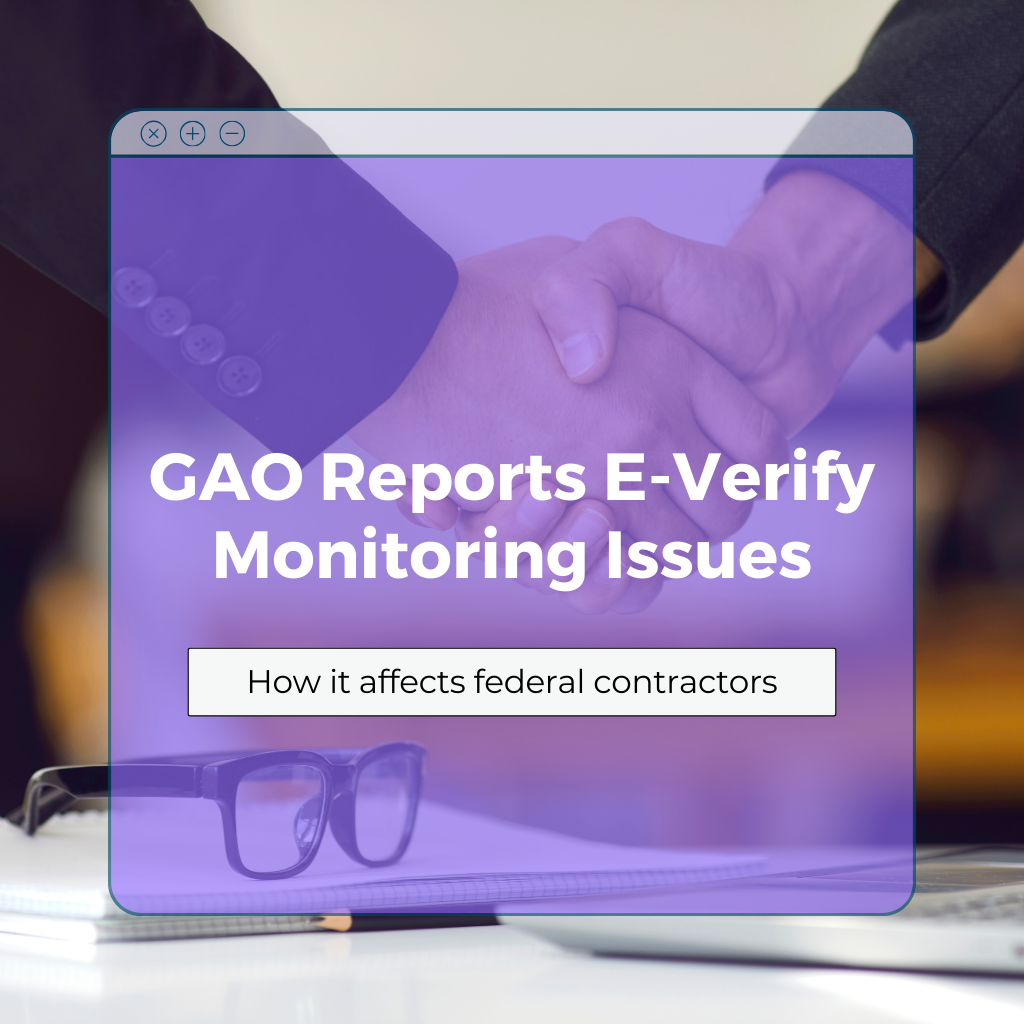The law requires federal agencies and contractors to use the E-Verify system for all new and current hires. Unfortunately, the U.S. Government Accountability Office (GAO) recently reported gaps in E-Verify’s usage. The report revealed inconsistent monitoring when ensuring contractors use the E-Verify system. It also exposed inconsistent enforcement concerning terminated E-Verify accounts.
E-Verify and FAR
E-Verify is a federal program the Department of Homeland Security (DHS) runs. It allows employers to verify that their new hires can work in the United States. The Federal Acquisition Regulation (FAR) requires federal agencies to include a clause in contracts and solicitations exceeding $150,000.
Excluding a few exceptions, the FAR mandates contracting employers to use E-Verify. These exceptions include contracts ending within 120 days or commercially available off-the-shelf items. Another lesser common exception concerns employees working outside the United States.
The GAO report focuses on three agencies: The Department of Defense (DOD), the Department of Homeland Security (DHS), and the Health and Human Services (HHS). The GAO chose these agencies because they represent nearly two-thirds of the contract awards. Furthermore, many of these awards fall under the E-Verify clause-the subject of the GAO’s interest.
GAO’s Report
In its report, the GAO noted that the three agencies had inconsistent policies for enforcing the E-Verify clause. However, the Office of Management and Budget (OMB) stated that it expects the agencies to monitor the E-Verify compliance of their contractors. Despite this claim, the GAO found that the OMB did not clearly communicate this expectation to the agencies.
The report also found that most officials monitoring their contractors’ compliance had relied on quarterly reports. These reports came from the U.S. Citizenship and Immigration Services (USCIS), which identified contractors’ enrollment and use of the system. However, the USCIS ceased producing these reports due to data limitations. Discontinuing this practice provided little information for agencies to use in monitoring contractors’ compliance.
The FAR has explicit instructions for terminated contractor accounts. The DHS must refer the contractor to suspension and debarment officials. They will determine if temporary disqualification or exclusion from government contracting is appropriate. However, the DHS acknowledged that it has not met this requirement.
As a result of these findings, the GAO has issued eight recommendations, including several specifics for the three agencies to resolve these issues. The report also recommended that the OMB clarify the agencies’ responsibilities. Finally, the DHS must implement a process for referring contractors with terminated accounts for further action.
